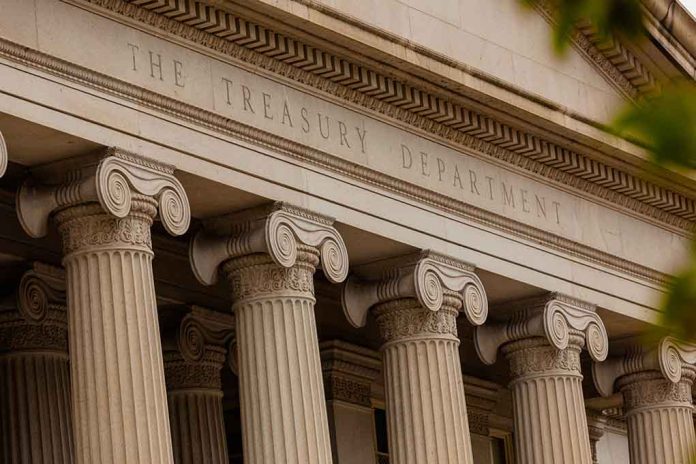
The Karen National Army, a Burmese militia, has been sanctioned by the U.S. Treasury for orchestrating sophisticated cryptocurrency scams that have defrauded victims of billions through social media manipulation and fake investment schemes.
Key Takeaways
- The U.S. Treasury has sanctioned the Karen National Army (KNA) for running “pig butchering” crypto scams that lure victims through dating apps and social media
- Scammers build trust with victims before convincing them to invest in fraudulent cryptocurrency projects, ultimately disappearing with the funds
- The Cambodia-based Huione Group has been designated a “primary money laundering concern” for processing over $4 billion in illicit funds between 2021-2025
- Huione’s USDH stablecoin is specifically designed to evade law enforcement by being resistant to freezing
- The group has connections to laundering stolen crypto assets for North Korea’s notorious Lazarus Group
Treasury Targets Burmese Militia’s Massive Crypto Scam Operation
In a significant move against international cryptocurrency fraud, the U.S. Department of the Treasury has imposed sanctions on the Karen National Army (KNA), a Burmese militia group that has been orchestrating elaborate cryptocurrency scams. The KNA has been implementing “pig butchering” schemes, a particularly insidious form of fraud where scammers establish relationships with victims through dating apps and social media platforms before convincing them to invest in non-existent cryptocurrency projects. This systematic approach to defrauding unsuspecting investors has resulted in massive financial losses for victims across the globe.
The scam operation works by first building trust with potential victims, often through romantic interest or investment expertise claims. Once trust is established, victims are persuaded to invest increasing amounts into fake cryptocurrency platforms that appear legitimate but are entirely controlled by the scammers. When victims attempt to withdraw their supposed profits or initial investments, they discover that both their money and the scammers have disappeared completely. The Treasury’s action represents a strong response to these predatory operations that target vulnerable individuals seeking investment opportunities in the digital currency space.
— dan linnaeus (@DanLinnaeus) May 17, 2024
Huione Group: The Money Laundering Operation Behind the Scams
At the center of this criminal enterprise is the Huione Group, a Cambodia-based organization that has been designated as a “primary money laundering concern” under the USA PATRIOT Act. According to Treasury investigations, this shadowy organization has been instrumental in processing the ill-gotten gains from the KNA’s cryptocurrency scams. The scale of Huione’s operation is staggering, with evidence suggesting they moved more than $4 billion in illicit funds between August 2021 and January 2025, demonstrating the enormous scale of these criminal enterprises operating in the cryptocurrency space.
Huione’s operations extend across multiple platforms and businesses, including Huione Pay, Huione Crypto, and a black market operation on Telegram rebranded as Haowang Guarantee. These entities form a complex network designed to obscure the origins of stolen funds and make them difficult to trace. Perhaps most concerning is Huione’s connection to North Korea’s notorious Lazarus Group, with evidence suggesting the organization has been laundering stolen cryptocurrency assets for the state-sponsored hacking group. This connection elevates the national security concerns associated with these operations beyond mere financial crime.
USDH Stablecoin: Designed to Evade Law Enforcement
The Financial Crimes Enforcement Network (FinCEN) has specifically flagged Huione’s USDH stablecoin as a tool designed for evading legal oversight. Unlike other stablecoins that can be frozen by their issuers when linked to criminal activity, USDH is reportedly engineered to be resistant to freezing. This technical feature makes it particularly valuable for money laundering operations and presents significant challenges to law enforcement agencies attempting to recover stolen funds or disrupt criminal financial networks. The Treasury’s action represents an important step in addressing these sophisticated evasion techniques.
President Trump’s administration has taken an increasingly aggressive stance against cryptocurrency fraud and money laundering operations that threaten U.S. financial security and exploit American investors. The sanctions against the Karen National Army highlight the growing intersection between traditional militant groups, sophisticated cybercrime, and cryptocurrency fraud. As these criminal enterprises continue to evolve, the Treasury Department’s actions demonstrate a commitment to protecting Americans from increasingly sophisticated international financial crimes that leverage cryptocurrency technology to evade traditional banking safeguards.




